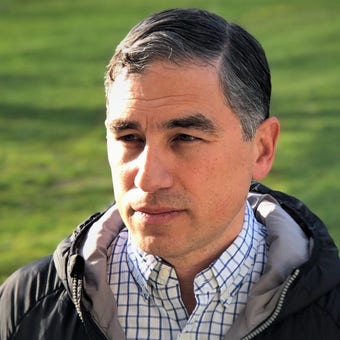They are locked up behind bars. Some for decades. Others for life. Some without the possibility of parole. Many of the inmates are considered violent, dangerous, a menace to society.
Only now, they are saving lives.
Prisoners at Mabel Bassett Correctional Center, down a remote road outside of Oklahoma City, have lately been stitching thousands of face masks for doctors, nurses and first responders.
DEROY MURDOCK: CORONAVIRUS AND CENSORSHIP — BIG TECH FIRMS HAVE TO MAKE A CHOICE
The inmates are helping those who are helping others.
Hobby Lobby, the Christian crafts chain, donated the cotton fabric; the inmates have done the rest.
While COVID-19 spreads, so does something else. Inmates across the nation are doing the same thing as they are in Oklahoma, making cloth face masks — from Massachusetts to Florida, from Texas to California.
More from Opinion
- Tim Graham: Michelle and Barack Obama rake in millions of dollars, as adoration by liberal media continues
- Newt Gingrich: China behaved horribly in coronavirus cover-up and is responsible for deaths around world
- Dan Gainor: Even anti-Trump NY Times wants Biden sexual assault allegation investigated – Bad news for Dems
The unfolding stories have received due coverage. But I think what is happening deserves a wider lens, especially in a nation with the highest incarceration rate in the world.
For a decade, I’ve investigated cases across the country where prisoners were wrongfully convicted or excessively sentenced, and I’ve learned at least one thing: Inmates are largely forgotten.
Yet some of those cast aside — there are more than 2 million people in U.S. prisons, rejected and reviled by society — are quietly hard at work, sowing masks at tables in the cavernous Mabel Bassett prison gym, now a makeshift textile operation.
By accident, I learned about this remarkable mask project, while talking by phone from Chicago with an Oklahoma inmate whose case I have investigated over the past two years. Kelsey Dodson has been imprisoned for a decade for a crime she has always maintained she didn’t commit — child neglect — with another decade to go before she regains her freedom.
The coronavirus has seeped into the cells of prisons across America, creating a din of news: Outbreaks have afflicted inmates. Riots have broken out.
While we were talking, Kelsey mentioned in passing how she was making masks to help with the shortage. There was no boast in her voice. There was, however, something else residing there: a sense of purpose, of meaning in what she was doing.
"It means a lot to me to be able to give back to the community and to make a difference and to show that we are more than just a number," she said.
Kelsey was referencing her six-digit DOC — Department of Corrections — number. What she was saying is, I think, a beautiful point. No one is to be thrown away. It’s a central story of the Bible, the revolutionary idea that Jesus preached — about love and forgiveness and redemption.
Luke 12:6-7:
"Are not five sparrows sold for two pennies? And not one of them is forgotten before God. Why, even the hairs of your head are all numbered. Fear not; you are of more value than many sparrows."
Kelsey just so happens to be something of a crochet maven. That’s how she has whiled away much of her time apart from her family; now, here she is, applying her weaving skills to make face masks, four layers of cotton, hemmed together, creating a protective layer.
Kelsey wears a face mask, too. So do the other prisoners at Mabel Bassett. Many are confined to their cells in a lockdown lasting nearly all day and all night.
The coronavirus has seeped into the cells of prisons across America, creating a din of news: Outbreaks have afflicted inmates. Riots have broken out. Some prison officials have released thousands of inmates. Policymakers and others have debated the wisdom of competing choices.
Not so long ago, lockdown was an unfamiliar term to many of us on the outside. But then came the tentacles of the coronavirus encompassing our lives, and now we have come to learn what it means to live in confinement: inside, away from others, in isolation.
The pandemic has in some ways made prisoners of us all.
CLICK HERE TO SIGN UP FOR OUR OPINION NEWSLETTER
But for the prisoners of Mabel Bassett, there is nothing new about the concept of lockdown.
On any given day, it’s a way of life. But one that shouldn’t be forgotten.

